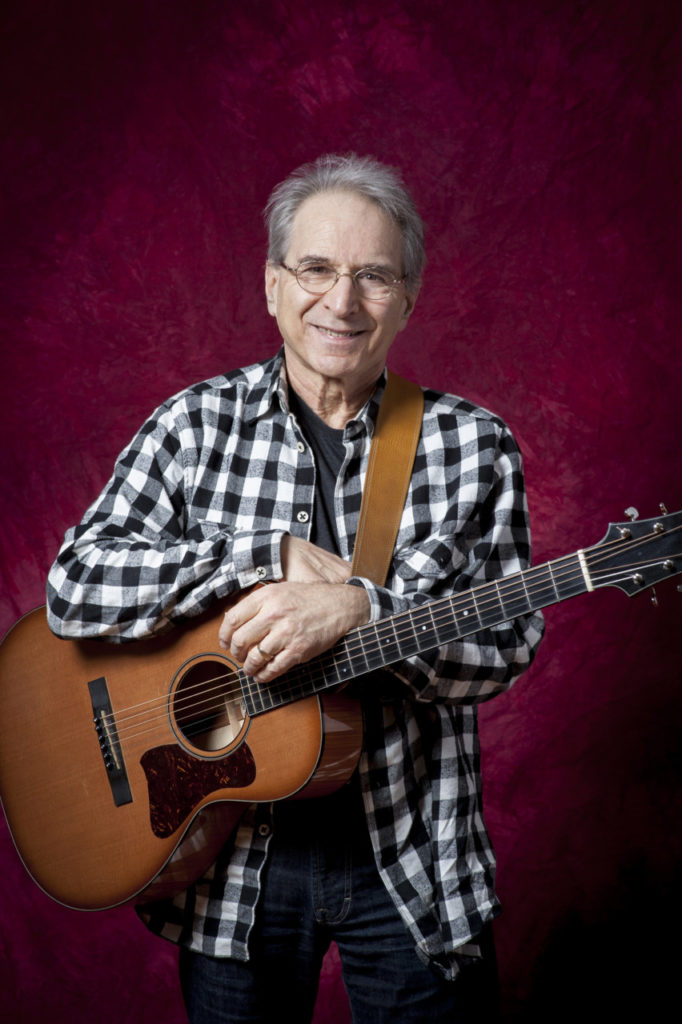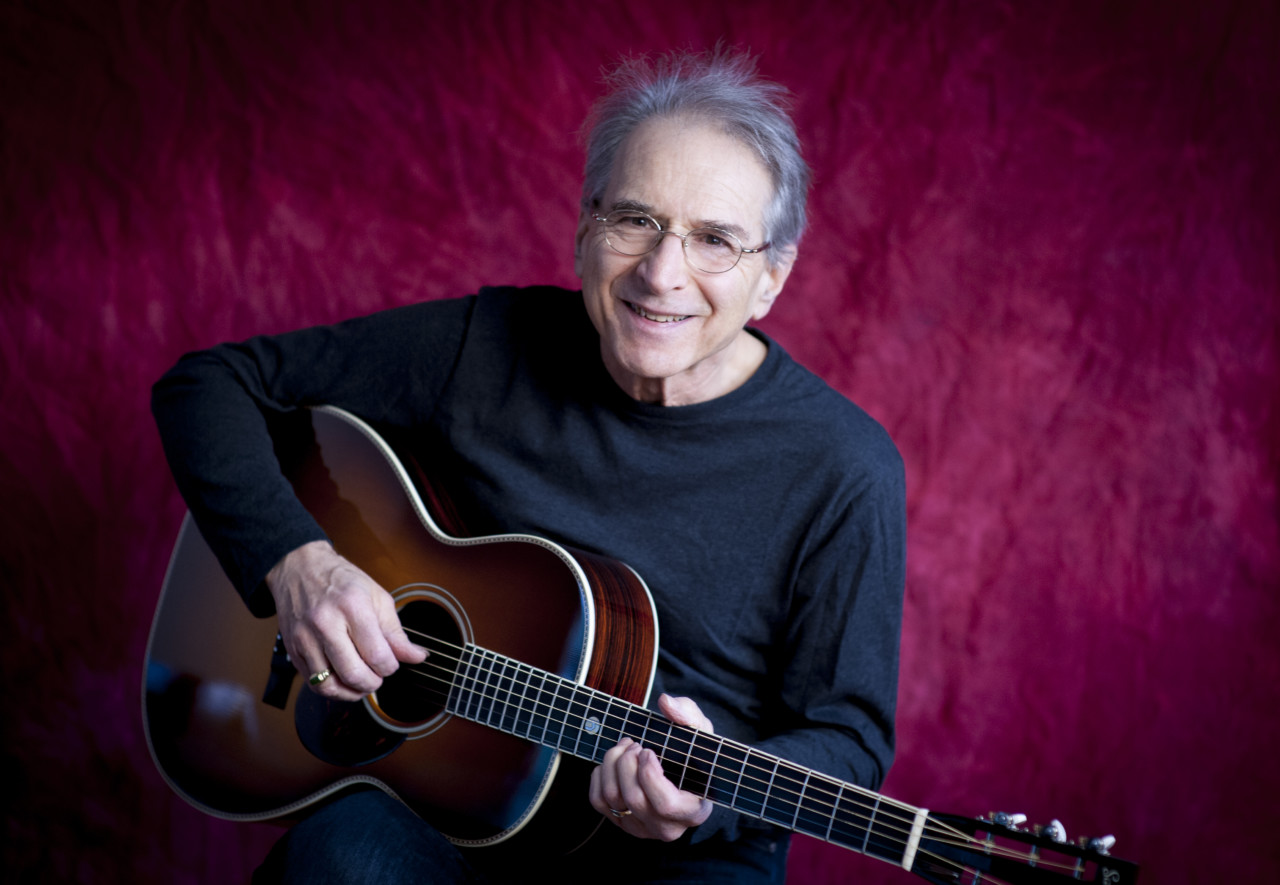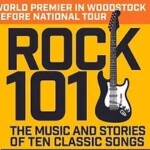By Iain Patience
Harry P. Traum is unlikely to register with many, a name that slips past with neither a nod nor even a glance, perhaps. Shorten it, however, pulling it together to read Happy Traum, and it rings the bell, bangs the drum and resonates with roots music lovers worldwide.
A New Yorker, Happy is one of those rare musicians, a musician’s musician. Revered by most in the musical know, he is easily one of the most significant acoustic-roots musicians and guitar pickers of his – and many other – generations. His guitar mastery is without equal or question, and his importance to the development of many world famous – and aspiring – musicians is genuinely astonishing.
Traum recalls with evident glee and deserved wonder and amusement how as a young guitar aspirant himself in late 1950s/early 1960s New York, he picked up a phone book and rang Brownie McGhee to ask for guitar lessons with one of modern blues music’s notable greats.
“At college, New York University, I’d heard Brownie’s Folkways album, Brownie McGhee’s Blues.” I loved it. I rang him up and he said, “Come on down. Let’s see what you can do and I’ll decide.” I spent the next two or three years with Brownie, visiting him every few weeks or so, just playing together. He’d tell me if I was going wrong and I’d ask him to show me what he was doing and where he was going. We’d spend two or three hours like that. It was wonderful. Sometimes Sonny Terry would turn up and we’d all just play along together.”
Back then, as the sixties folk boom began to explode onto the world music stage, bringing with it a remarkable wealth of talent, inspired music and unsurpassed genius, New York was certainly the place to be. Liverpool and the UK music rocket had yet to surface, let alone take off to the stratosphere.
Happy remembers sharing licks and verses with almost everyone of note, then relative newcomers, unknowns before the music industry had even developed. John Sebastian, Maria Muldaur, John Hammond, Rory Block, Mary Travers (Peter, Paul & Mary), Dave Van Ronk, Bill Keith, David Bromberg, Phil Ochs and a rough-edged, fledgling guy, destined to become a lifelong buddy, with a strident voice and desperate desire for success, Bob Dylan.
Tom Paley, one of the original members of leading, radical band the New Lost City Ramblers, also gave his time and encouragement freely to the young Happy Traum. “I remember Tom as a really nice player, a very fine picker. He did a great version of “Railroad Bill,” running through it many times for me, always helpful, never dismissive, bored or irritated. It’s great to know he’s still around playing and picking.” Paley, now approaching 90, is indeed still out there. Now based in London, he traveled to New York City’s Carnegie Hall to play Lead Belly Fest last February, and released Paley & Son – his first since 2011 – on UK roots label Hornbeam Recordings in May of 2015, with those same picking skills ably in the fore, supported by his son, Ben, on fiddle.
 At this time, the beginning of the 1960s, many of these seminal musicians would meet up, jamming, busking and simply having fun in New York’s Washington Square most weekends. Happy Traum was always there, picking his guitar, alongside his fairly recently passed brother, Artie, and picking the brains and fingers of others who also converged on the park each weekend.
At this time, the beginning of the 1960s, many of these seminal musicians would meet up, jamming, busking and simply having fun in New York’s Washington Square most weekends. Happy Traum was always there, picking his guitar, alongside his fairly recently passed brother, Artie, and picking the brains and fingers of others who also converged on the park each weekend.
He remembers Izzy Young, who ran the Folklore Centre in the city being around always, and how they all had a run-in with authority when attempts were made to outlaw the weekly music meetings. And he recounts how the young, unknown Bob Dylan – soon to be given his first professional gig thanks to Young – first pitched up in New York in the early sixties: “He’s on one of my Broadside records. I did a duet with him and he wrote the sleeve/liner notes for another with Atlantic Records.”
Never surprised by Dylan’s extraordinary success, he says: “We are friends. We were real close for about six or seven years and Bob lived nearby (in Woodstock, where Traum has been resident for around 50 years). I did a lot of work with him in the early ‘70s. In 1971, I think, I did the sessions with him that became his Greatest Hits albums. We always got on well together.”
Amongst his other neighbors at the time were John Sebastian – still a resident – and Dylan’s backing band, the Band’s drummer and singer, Levon Helm. Larry Campbell, another Dylan sideman, and stalwart of the Americana Music Awards annual blast, also lives nearby. The Band’s famous – or infamous – Big Pink house was another local landmark, and spawned Dylan’s famous Basement Tapes album. Traum also recalls working with Beat poet Allen Ginsberg around this same time.
For many years, he has been involved with what is probably the single, most influential, important roots and blues music teaching resource, Homespun Tapes: “I initially set it up about fifty years ago as Homespun Tapes. We did it all from home, reel-to-reel. Then came cassettes, followed by video and now CD and DVD,” he laughs with evident pleasure. “We’ve got about 200 artists now.”
Of particular pleasure and a source of some evident satisfaction is the fact that one of Traum’s own personal roots music heroes, Pete Seeger, signed over the rights to his famous 5-String Banjo tutorial to Happy’s Homespun operation before he died a few years ago. “I was always a great fan of Pete’s, and it was amazing that he did that. It means a lot to me.”
These days, apart from his teaching and Homespun, Traum still enjoys getting out and about, picking guitar, passing on the music and playing U.S. festivals like Merlefest in North Carolina, and teaching at Jorma Kaukonen’s famed Fur Peace Ranch in the Ohio hills.
He believes the music is in a safe place, with young students eager to keep it alive and give it new meaning. And he still derives great pleasure from recording, even as a seasoned veteran. In July of last year, Traum released his latest album, Just For The Love Of It, a fourteen track master-class in tasteful fretwork and delicious covers, including takes on “Careless Love,” “In The Pines,” both from Leadbelly’s back catalogue, and a stunningly beautiful, pared-down version of the old standard, “Tennessee Waltz.” Recorded mostly without overdubs and as close to live performance as a studio allows, Traum says of the release: “My idea was to play and sing, alive and live in the studio. To try capture that wonderful interaction that happens spontaneously with musical friends. There are a few obvious places where overdubs were inevitable, but for the most part the music on this CD reflects the way it happened in the moment – no frills, as honest as I could make it.”
Looking ahead, to what might yet be in store, Happy Traum remains upbeat and optimistic: “I don’t know what the future holds, maybe not much more for me at my age,” he laughs. “But the acoustic music scene seems to be thriving, with some fantastic stuff coming out. It always ebbs and flows. It’s just how it is.”








Be the first to comment!